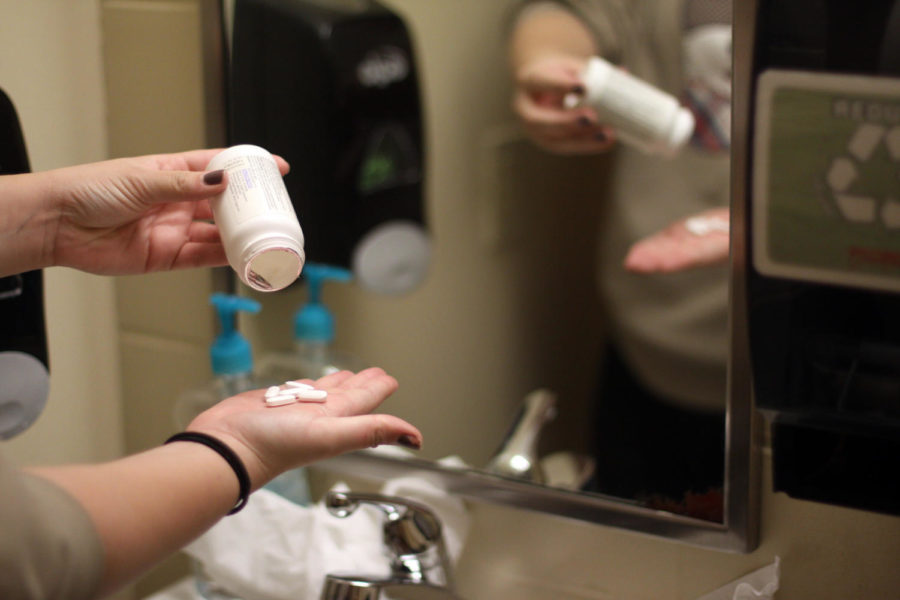Woods: Runny noses, over-the-counter drugs don’t mix
Using over the counter medication for some of our more commons symptoms of colds isn’t always the best solutions. Utilizing home remedies and methods can work better and helps avoid using unnecassary drugs.
December 1, 2014
It’s the time of the year again for runny noses, sore throats, obnoxious coughs and achy body parts — aka a cold.
In much of the Northern Hemisphere, this is prime time for colds, — otherwise known as the flu — and other respiratory illnesses, according to the U.S. Department of Health and Human Services.
According to the Food and Drug Administration’s website, “While contagious viruses are active year-round, fall and winter are when we’re all most vulnerable to them. This is due in large part to people spending more time indoors with others when the weather gets cold.”
While illnesses continue to rage on over the years, the FDA regulates medicines and vaccines that help fight winter sicknesses.
Medicines become a hot commodity over the season, and it is important to remember that fast and easy isn’t always the answer. There are a lot of home remedy options that are better and healthier than what a pharmacy can offer, especially in regards to health.
A lot of the drugs that are available to the public have ingredients that, if used improperly, can be harmful to the body. Ingredients like acetaminophen, brompheniramine and chlorpheniramine can have the effects of nausea, vomiting, diarrhea, abdominal pain, yellowing of the skin and eyes, sweating, irritability, loss of appetite, shaking, insomnia, hallucinations and seizures.
It’s not the best idea to use these drugs often or in large quantity. I’ve always heard, “Everything in moderation.” But even in moderation there isn’t anything better for your body than natural, home remedies.
On average, a billion colds occur each year in the United States. The Centers for Disease Control and Prevention’s National Center for Health Statistics states that on an annual basis close to 22 million school days are lost due to illness from colds, and 45 million days are spent resting while recovering from colds.
Because it happens so frequently, stuffing yourself full of medicines that have the potential to do more harm than good isn’t the best idea. The common cold can’t be cured because it changes its biological makeup constantly and can avoid being affected by antibiotics.
“[Antibiotics are] no help against cold viruses. Avoid asking your doctor for antibiotics for a cold or using old antibiotics you have on hand. You won’t get well any faster, and inappropriate use of antibiotics contributes to the serious and growing problem of antibiotic-resistant bacteria,” states the Mayo Clinic.
So about those home remedies. According to the Mayo Clinic, the best way to rid yourself of the cold through natural means is water, juice, clear broth or warm, lemon water with honey because it helps loosen congestion and prevent dehydration.
As cliche as it may sound, chicken soup also plays a crucial roll in the easing cold symptoms and eventually riding it from the body.
According to the Mayo Clinic, “First, it acts as an anti-inflammatory by inhibiting the movement of … immune system cells that participate in the body’s inflammatory response. Second, it temporarily speeds up the movement of mucus, possibly helping relieve congestion and limiting the amount of time viruses are in contact with the nose lining.”
A salt gargle can relieve a sore or scratchy throat. Dissolving about 1/4 of a teaspoon of salt in an 8-ounce glass of water would do the trick temporarily and help ease pain.
All in all, the answer isn’t through over-the-counter drugs where the possibility of causing harm to your body hangs in the balance. The answer is through home remedies that are not only cheaper for you but also better to help the body’s natural forces stop the cold in its tracks.







